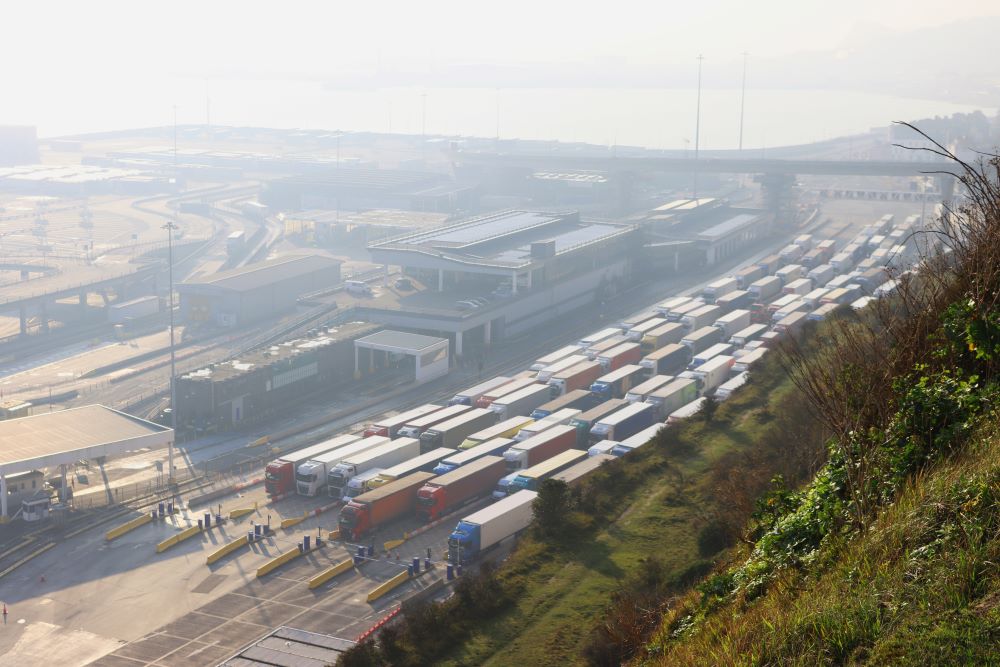
French demands for wet signatures on customs documents for British food exports to the EU are to blame for lorry queues in Dover, the British Chambers of Commerce (BCC) has claimed.
Authorities in France are stopping shipments to request signed and physical copies of health certificates for plant and animal exports, even though most are digitally produced.
Wet signatures
According to the Guardian, the EU has required documents with a wet signature from an official veterinarian for imports of food and animal feed from the UK since the end of the transition period on 31 December 2020.
Electronic certification would have been possible using EU systems, but the UK declined an offer to use this and instead built its own system.
New customs rules were introduced for exports to the continent at the end of the transition period, while new rules for imports into Britain from the bloc came in on 1 January 2022.
Ship shortage
A UK government spokesperson said that a shortage of vessels was the primary cause of delays at Dover, rather than new customs processes, but said the EU should “take a pragmatic approach as the new rules come into effect”.
The Telegraph reports that the situation has forced the repeated triggering of Operation Travel Access Protocol (TAP), a set of restrictions that force lorries to park up on the left-hand lane of the A20 into Dover.
There have been reports of queues running to six miles and longer.
Interpretation issue
William Bain, head of trade policy at the BCC, said: “Like many of the problems this looks to be down to a differing interpretation of how the trade arrangements work after leaving the EU.”
He added: “No-one is expecting goods to flow as freely across the channel now as they did prior to Brexit. But the way the trade agreement is being interpreted in 27 different EU countries is a major headache for UK business – especially smaller firms without the cash reserves to set up new EU based arrangements.”
Challenges
The BCC has highlighted multiple challenges for business and suggested solutions, including:
- a supplementary deal on health certificates to eliminate or reduce the complexity of exporting food for SMEs
- a deal on VAT requirements in multiple European markets
- action on the proposed ban on CE marked goods in Britain from 2023/4
March of digital
In general terms, global trade is moving towards a greater use of digital documentation and the pandemic has helped accelerate a switch away from wet signatures.
A study by the International Chambers of Commerce, reported in the Independent, claims the world’s largest economies could increase the flow of international trade by £6.6 trillion by 2026 if they shift to using digital trade documents.



